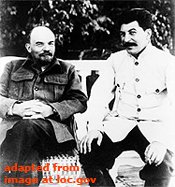The collapse of the Soviet Union: What was it — the greatest geopolitical catastrophe of the 20th century or simply a major disaster?

Subject: The collapse of the Soviet Union: What was it — the greatest geopolitical catastrophe of the 20th century or simply a major disaster? [Adomeit’s second note]
Date: Sun, 03 Aug 2014
From: Hannes Adomeit (hannes.adomeit@t-online.de)
The collapse of the Soviet Union: What was it — the greatest geopolitical catastrophe of the 20th century or simply a major disaster?
Hannes Adomeit
Until last year professor at the College of Europe in Natolin (Warsaw) and previously head of the Eastern European and Eurasia section of the German Institute on International Politics and Security in Berlin.
1. Concerning the controversy between Patrick Armstrong and Anders Aslund (JRL 167 ## 33, 34) as to whether the translation of “крупнейшая катастрофа” in Putin’s his statement about “крушениеСоветскогоСоюзабылокрупнейшейгеополитическойкатастрофойвека” should really be translated as “a major” rather than “the greatest” geopolitical catastrophe of the 20th century, Armstrong may be right. If Putin really had wanted to say “the greatest,” he would have used “самыйкрупный.”
2. Yet having said that, Putin’s statement is still outrageous. The qualifying adjective of “geopolitical” is telling. To him, in line with his determined attempts to restore Russia to the status of a Great Power, it was evidently the fact the Soviet Union lost its status as such a Power or as a world or super-power that was the disaster, a “catastrophe.”
3. Putin, as quoted by Armstrong, deplored the fact that “for the Russian nation, it [the collapse of the Soviet Union] became a genuine drama. Tens of millions of our co-citizens and compatriots found themselves outside Russian territory.” This clearly reflects a narrow Russian nationalist perspective. Nothing is said of what non-Russians, from titular Union Republics — Estonians, Latvians, Latvians, Ukrainians, Moldovans, Georgians … — or non-Russian nationalities like Tatars, Chechens, Ingush and other “repressed” nationalities thought. Here are the seeds for Moscow’s arrogant claim in its self-proclaimed “privileged” sphere of interest not only to have the right but also the obligation to “protect” the “rights” of Russian citizens and compatriots, if need be by military intervention.
4. This interpretation could be challenged by pointing to a statement Putin had made a few months earlier, that is, that the dissolution of the Soviet Union was an “all-national tragedy of enormous proportions” (“развал Советского Союза – это общенациональная трагедия огромного моасштаба”, http://www.kremlin.ru/transcripts/24817). He dispelled the notion that only the Russians suffered from the collapse. “I believe,” he said, “that ordinary citizens of the former Soviet Union and citizens of the post-Soviet space, the countries of the CIS, ordinary citizens, gained nothing from it – on the contrary, the people were struggling with a tremendous number of problems.” The fact that citizens of CIS countries other than Russia gained independence meant “nothing”?
5. Putin’s thinking about the nature of the Soviet Union and how it relates to present-day Russia is very well reflected in another statement of his: “The Soviet Union – that, too, is Russia but only under another name” (“Советский Союз – это таже Россия, но с другим названием” http://ruskline.ru/news_rl/2011/10/18/sovetskij_soyuz_eto_ta_zhe_rossiya_no_s_drugim_nazvaniem/). Unfortunately, the obverse is becoming ever more true, i.e. that current-day Russia is like the Soviet Union only under another name — Россия – это та же Советский Союз, но с другим названием.
6. Having said all that, perhaps it may be wise not to pay too much attention to what Putin says, to take things he utters at face value, but to look more closely at what he does. To take an example, shortly after the Russian military intervention in Georgia, Putin was asked by the First Channel of German TV whether the next conflict would be over Ukraine, in particular, whether Crimea would be the next objective of Russian policy. “I’ll explain everything,” Putin replied. “The Crimea territorially is not under dispute. In contrast to South Ossetia and Georgia, there is no ethnic conflict. And a long time ago Russia recognized the borders of today’s Ukraine. Basically, we concluded our talks concerning the borders. Questions of delimitation are at issue but these pertain only to only technical matters. The question about any [Russian] objectives in Ukraine similar [to those in relation to Georgia] very much smells to me like a provocation” (http://www.tagesschau.de/ausland/kaukasuskonflikt148.html). Quod erat demonstrandum.
